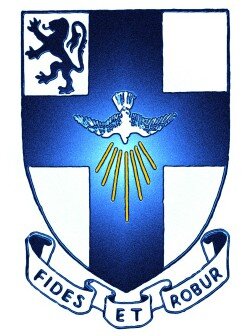Classical Studies
‘Per aspera ad astra – Through difficulty, to the stars!
Why Classical Studies?
The Latin word ‘Educo’ translates as ‘to lead forth’. For over a thousand years, many educational theorists have identified Latin as the perfect way to lead children’s intellectual and educational development through to adulthood.
Latin is a gateway to one of the most influential and awe-inspiring periods of human history, Ancient Rome and forms a cultural link across countless nations and peoples in the modern world.
The language forms the basis of the way in which over a billion people communicate with one another today. As such, it’s an invaluable aid in the learning of many languages such as French and Spanish and to the understanding and development of our English vocabulary and grammar.
Our Primary Aims – Latin in Willow Park First Year
– To foster a love of the Latin language and Roman culture and its contribution to our society today.
– To provide a basic groundwork in which to understand and progress in the Latin language.
– To encourage good communication.
– To foster diversity.
– To supplement cross-curricular learning and increase knowledge.
– To encourage independent and autonomous learning.
– To educate!
Course Content – First Year
We adopt a varied approach to the teaching of Latin in Willow Park and as such place great emphasis on the following learning activities:
1. Experiential Learning
‘Experientia docet’, as the Romans used to say. Experience teaches! We organise an annual school trip and engage a wide range of learning methods and materials in the classroom. This enables the students to experience the subject first-hand and acquire a deep appreciation for Roman culture and the Latin language.
2.Project Presentations
Students plan, design and present projects from selected topics: The Gods and Famous Roman Buildings. These can be completed in digital, scrapbook, or poster format. The student presentation represents 30% of the Christmas Report Result.
Marks are given for research, written presentation and oral presentation. A strong emphasis is placed on the ability of the student to engage the interest of his fellow students and demonstrate an understanding of either the building or god he has chosen.
3.The Discovery Method
Educo. Students are encouraged to reflect on their own learning and apply it to what they already know.
First Year Syllabus – The Cambridge Latin Course
‘We’re travelling back almost 2000 years to AD 79, a time when the Romans controlled much of Europe. The magnificent Italian city of Rome is the centre of the Roman Empire and 125 miles to the south of the capital are the beautiful Bay of Naples, the slumbering volcano Mount Vesuvius, and the prosperous Roman town of Pompeii. Let’s explore Pompeii, meet some of its citizens and investigate the Roman world’.
The Cambridge Latin Course is the most popular and most successful Latin course in the UK and Ireland. The story-based course provides an enjoyable and carefully paced introduction to the Latin language, complemented by background information on Roman culture and civilisation. The material progresses from simple stories written specially for the course, through adaptations of Roman authors, to original texts. The texts are accompanied by explanations of key language points, and are supported by grammar practice exercises. Extensive support for the course is provided in the Cambridge Latin Course website, which receives over 80,000 visitors each week, and further e-learning support is available in the form of the textbook’s E-Learning Resource.
Useful Links for First Year Students
Click here for online resources and activities from The Cambridge Latin Course.
Click here to test your First Year Latin vocabulary!
Click here for a complete dictionary for the First Year Latin course!
Click here for BBC online resources for Roman History.
Click here for a video guide to the city of Rome, 320 AD.
Click here for Ancient Rome’s very own satellite navigation guide, and plan your trip across Ancient Europe!
